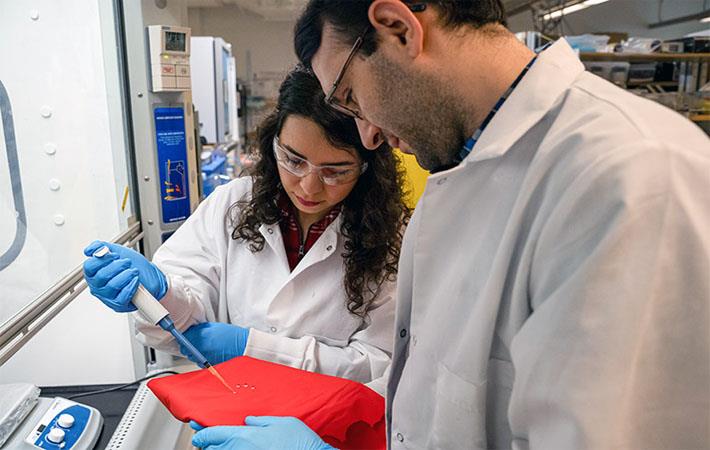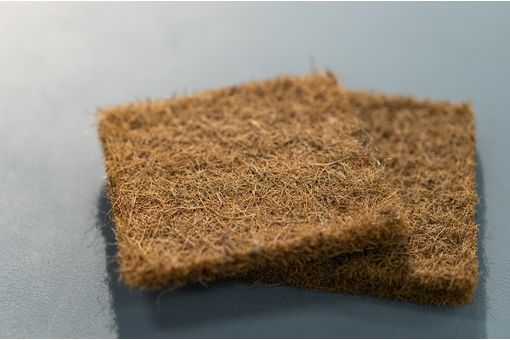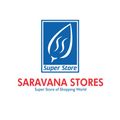Interviews
UBC, Arc'teryx create non-toxic textile finishes
18 Aug '20
3 min read

UBC Okanagan researchers Sadaf Shabanian (left) and Kevin Golovin (right) test water-repellent fabric treatment. Pic: University of British Columbia
Researchers at UBC Okanagan and outdoor apparel giant Arc’teryx have created non-toxic oil and water-repellent performance textile finishes. Outdoor fabrics are typically treated with perfluorinated compounds (PFCs) to repel oil and water. But PFCs pose risk to health and the environment. The new fabric finish can be made from biodegradable materials.
The research has been published in the journal Nature Sustainability.
A sustainable, non-toxic and high-performance water-repellent fabric has long been the holy grail of outdoor enthusiasts and clothing companies alike. Outdoor fabrics are typically treated with perfluorinated compounds (PFCs) to repel oil and water. But according to Sadaf Shabanian, doctoral student at UBC Okanagan’s School of Engineering and study lead author, PFCs come with a number of problems.
“PFCs have long been the standard for stain repellents, from clothing to non-stick frying pans, but we know these chemicals have a detrimental impact on human health and the environment,” explains Shabanian. “They pose a persistent, long-term risk to health and the environment because they take hundreds of years to breakdown and linger both in the environment and our bodies.”
According to Mary Glasper, materials developer at Arc’teryx and collaborator on the project, these lasting impacts are one of the major motivations for clothing companies to seek out new methods to achieve the same or better repellent properties in their products.
To solve the problem, Shabanian and the research team added a nanoscopic layer of silicone to each fibre in a woven fabric, creating an oil-repellent jacket fabric that repels water, sweat and oils.
By understanding how the textile weave and fibre roughness affect the liquid interactions, Shabanian says she was able to design a fabric finish that did not use any PFCs.
“The best part of the new design is that the fabric finish can be made from biodegradable materials and can be recyclable,” she says. “It addresses many of the issues related to PFC-based repellent products and remains highly suitable for the kind of technical apparel consumers and manufacturers are looking for.”
Arc’teryx sees lot of potential in this solution. “An oil- and water-repellent finish that doesn’t rely on PFCs is enormously important in the world of textiles and is something the whole outdoor apparel industry has been working on for years,” says Glasper. “Now that we have a proof-of-concept, we’ll look to expand its application to other DWR-treated textiles used in our products and to improve the durability of the treatment.”
“Working to lessen material impacts on the environment is crucial for Arc’teryx to meet our goal of reducing our greenhouse gas emissions by 65 per cent in intensity by 2030,” she adds.
Kevin Golovin, principal investigator of the Okanagan Polymer Engineering Research and Applications Lab where the research was done, says the new research is important because it opens up a new area of green textile manufacturing. He explains that while the new technology has immense potential, there are still several more years of development and testing needed before people will see fabrics with this treatment in stores.
“Demonstrating oil repellency without the use of PFCs is a critical first step towards a truly sustainable fabric finish,” says Golovin. “And it’s something previously thought impossible.”
The research is funded through a grant from the Natural Sciences and Engineering Research Council of Canada (NSERC), with support from Arc’teryx Equipment.
The research has been published in the journal Nature Sustainability.
A sustainable, non-toxic and high-performance water-repellent fabric has long been the holy grail of outdoor enthusiasts and clothing companies alike. Outdoor fabrics are typically treated with perfluorinated compounds (PFCs) to repel oil and water. But according to Sadaf Shabanian, doctoral student at UBC Okanagan’s School of Engineering and study lead author, PFCs come with a number of problems.
“PFCs have long been the standard for stain repellents, from clothing to non-stick frying pans, but we know these chemicals have a detrimental impact on human health and the environment,” explains Shabanian. “They pose a persistent, long-term risk to health and the environment because they take hundreds of years to breakdown and linger both in the environment and our bodies.”
According to Mary Glasper, materials developer at Arc’teryx and collaborator on the project, these lasting impacts are one of the major motivations for clothing companies to seek out new methods to achieve the same or better repellent properties in their products.
To solve the problem, Shabanian and the research team added a nanoscopic layer of silicone to each fibre in a woven fabric, creating an oil-repellent jacket fabric that repels water, sweat and oils.
By understanding how the textile weave and fibre roughness affect the liquid interactions, Shabanian says she was able to design a fabric finish that did not use any PFCs.
“The best part of the new design is that the fabric finish can be made from biodegradable materials and can be recyclable,” she says. “It addresses many of the issues related to PFC-based repellent products and remains highly suitable for the kind of technical apparel consumers and manufacturers are looking for.”
Arc’teryx sees lot of potential in this solution. “An oil- and water-repellent finish that doesn’t rely on PFCs is enormously important in the world of textiles and is something the whole outdoor apparel industry has been working on for years,” says Glasper. “Now that we have a proof-of-concept, we’ll look to expand its application to other DWR-treated textiles used in our products and to improve the durability of the treatment.”
“Working to lessen material impacts on the environment is crucial for Arc’teryx to meet our goal of reducing our greenhouse gas emissions by 65 per cent in intensity by 2030,” she adds.
Kevin Golovin, principal investigator of the Okanagan Polymer Engineering Research and Applications Lab where the research was done, says the new research is important because it opens up a new area of green textile manufacturing. He explains that while the new technology has immense potential, there are still several more years of development and testing needed before people will see fabrics with this treatment in stores.
“Demonstrating oil repellency without the use of PFCs is a critical first step towards a truly sustainable fabric finish,” says Golovin. “And it’s something previously thought impossible.”
The research is funded through a grant from the Natural Sciences and Engineering Research Council of Canada (NSERC), with support from Arc’teryx Equipment.
Fibre2Fashion News Desk (SV)
Popular News
Leave your Comments
Editor’s Pick
C Devarajan & P Raajashekar
Texvalley
Kimberly Morgan and Rik Veltman
K3 Business Technology Group PLC
Kunal Mehta
Kanchi by Shobhna and Kunal Mehta
Sabapathy Rajaratnam
Super Saravana Stores
































-Ltd..jpg?tr=w-120,h-60,c-at_max,cm-pad_resize,bg-ffffff)





.jpg?tr=w-120,h-60,c-at_max,cm-pad_resize,bg-ffffff)
.jpg?tr=w-120,h-60,c-at_max,cm-pad_resize,bg-ffffff)






